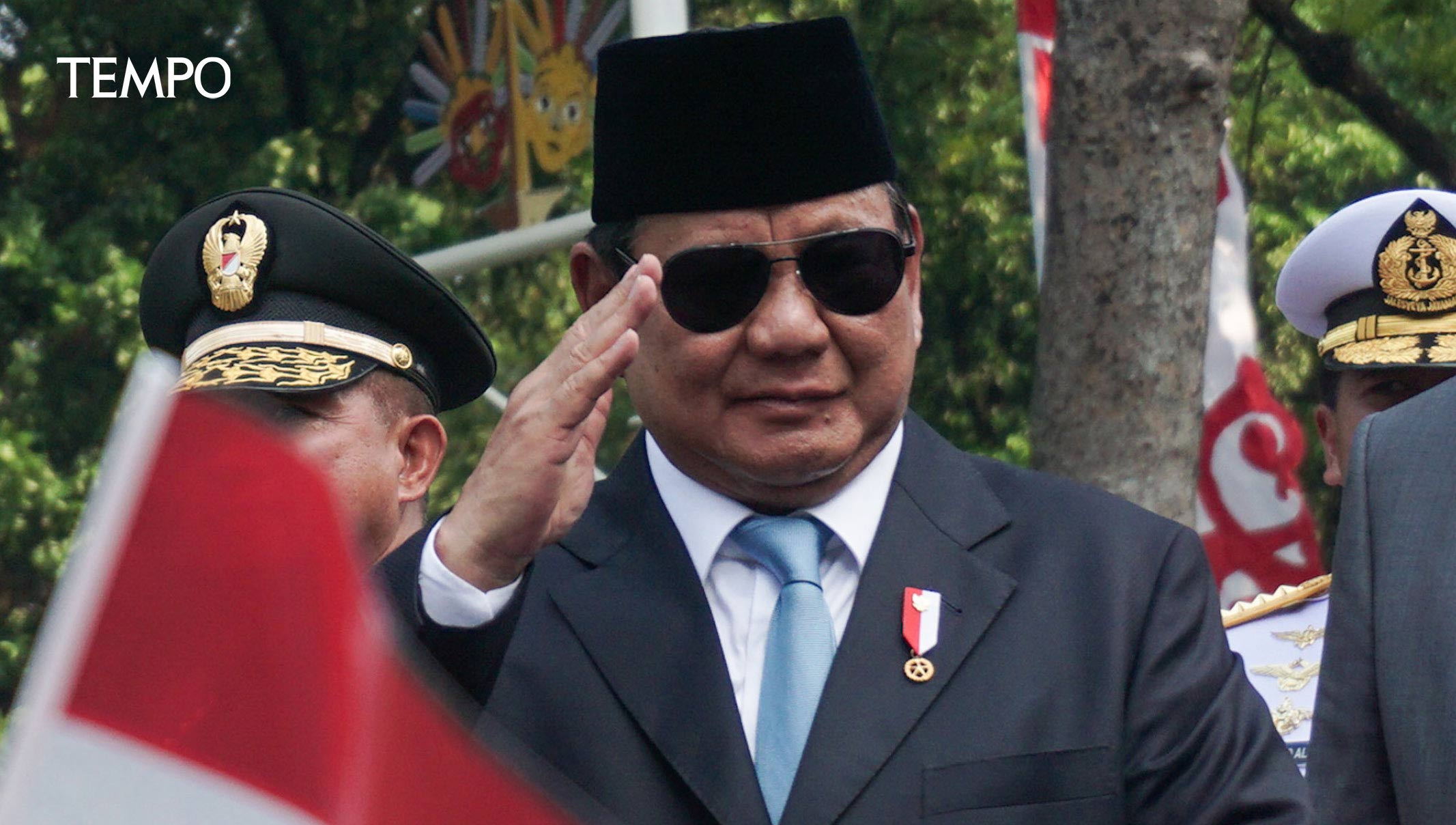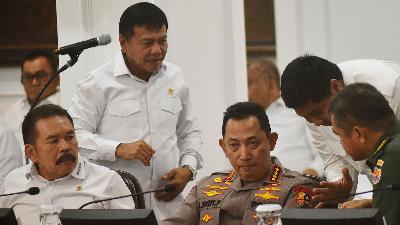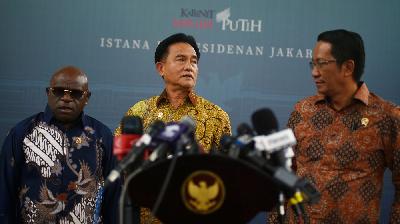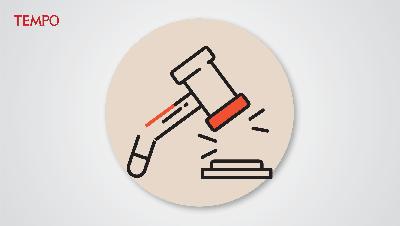On the Brink of Authoritarianism
Monday, February 3, 2025
Militarism has strengthened in the 100 days of Prabowo Subianto’s cabinet. It has given rise to competitive authoritarianism.
arsip tempo : 174463954044.

FROM the first 100 days of the Prabowo Subianto administration, it is possible to guess what will happen in the coming years: strengthened militarism, weakened civil supremacy, and democracy on the edge of the abyss. Signs that we are heading in this direction are apparent not only because the Prabowo administration has rolled out the red carpet for the military, but also because he inherited a democracy that had already been weakened by the government of Joko Widodo.
In the first three months of his government, Prabowo has redeployed the military into the realm of state affairs. The use of troops work on food estate is one example. Other use of military include controlling forest areas, helping with the free nutritious food program and also taking responsibility for organizing the haj pilgrimage. These responsibilities are not included in non-conflict military operations listed in the Indonesian Military (TNI) Law.
Over the next five years, the military will tighten its grip. The Ministry of Defense plans to increase the number of territorial military commands from 15 to 37 by 2029. Every year for the next five years, the government will add another 100 territorial infantry battalions to accelerate national development. Each battalion will have companies that will be responsible for animal husbandry, aquaculture, agriculture and health. And as if this were not enough, these battalions, which will be under the command of the military district command, will be reinforced by two battalions of reserves recruited from the civilian population.
Effort to stop this strengthening of militarism will be harder once the government and the House of Representatives amend the TNI Law, the revised draft of which has been added to the national legislative program. With troops actively encroaching on civilian positions, the military will increasingly spread its influence, and civilians will be left on the sidelines. There is a risk that this domination by the military will once again lead to militaristic methods being used to resolve issues of governance.
The collapse of civil supremacy will clear the way for the creation of a new form of authoritarianism. Not conventional authoritarianism that does away with democracy and terrorizes the people, but a system that looks like democracy or bogus democracy. Political scientists Steven Levitsky and Lucan Way refer to this model as competitive authoritarianism.
This is what happened in a number of Balkan states: general elections were held, but the rules were bent to favor one particular candidate. The people had the right to vote, but there were no candidates who represented their aspirations. Critical media were not silenced, but they were not allowed to grow. The ruling regime controlled public opinion by co-opting media that have wide reach.
The symptoms of competitive authoritarianism actually first appeared during the 2024 presidential election. The methods were vulgar: Jokowi made his son vice-president through judicial acrobatics and the use of state resources, from deploying troops to handing out social assistance funds. At the voting booths and when the results were being counted, it appeared that everything was above board. But in fact, the election result was ‘arranged’ before polling day.
In the elections for regional heads, the same phenomenon occurred—although things did not go perfectly as planned, because they were foiled by the Constitutional Court, which changed the regulations shortly before the deadline for registering candidates. Preventing strong candidates from standing and deploying the security forces to ensure the victory of favored candidates showed how competitive authoritarianism works. Political incidents over the last year and a half have shown that the appearance of authoritarianism is no longer just a prophecy, but is becoming a reality before our eyes.
With a battered democracy, far weaker than when Jokowi first became president, Prabowo immediately consolidated his power by gathering the parties and political elite to support his administration when he was inaugurated as president.
Without an opposition, the competitive authoritarianism era in Indonesia can no longer be halted. And perhaps the worse is yet to come: with an increasingly dominant military, we could fall into the abyss of full authoritarianism.











